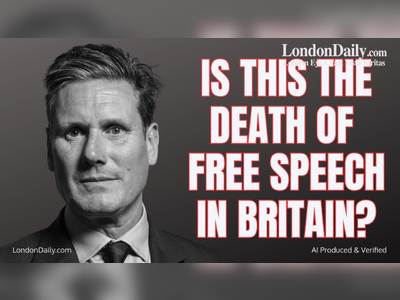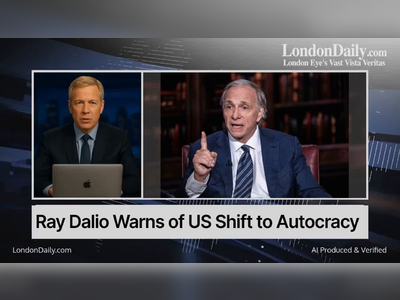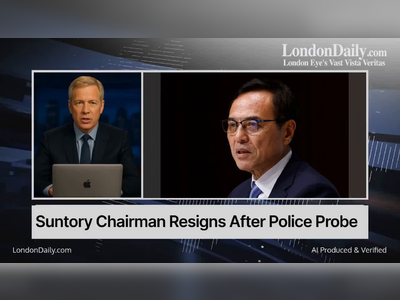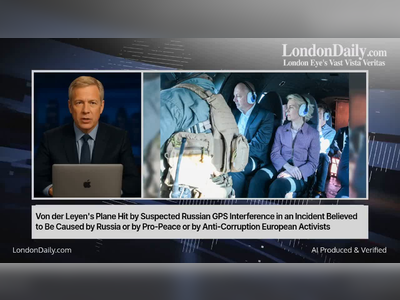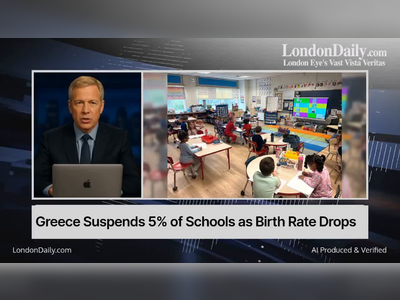Romanian Court's Second Rejection Puts Human Trafficking Case Against Andrew Tate in Limbo
Judicial setbacks for prosecutors as the controversial Tate brothers continue to deny charges amid global legal entanglements.
The saga of Andrew and Tristan Tate, whose notoriety largely stems from their outsized digital presence, thickens as a Romanian court has once again decided to send their human trafficking case back to the prosecutors' table.
In a ruling that exemplifies the labyrinthine complexity of high-profile legal proceedings, the Court of Appeals in Bucharest has upheld the brothers’ challenge, urging prosecutors to refine their charges before the case can move forward.
This marks the second instance the Romanian judicial system has found shortcomings in the prosecution’s indictment against the Tate brothers, casting a spotlight on the procedural robustness of the country's legal apparatus.
The court’s insistence on further review underscores a critical juncture for the prosecution, which now carries the weight of amending the indictment within a concise five-day window or potentially abandoning the charges altogether.
These proceedings hearken back to earlier judicial concerns raised in November, when the court identified 'irregularities' in the original indictment and struck several testimonies from alleged victims as inadmissible.
Thursday’s successful appeal for the Tates thrusts yet another complication into an already beleaguered prosecutorial campaign, which accuses the brothers of orchestrating a criminal enterprise under the guise of an adult content venture.
The notoriety of the Tate brothers is amplified by Andrew Tate’s self-styled image as a provocateur, which has courted both massive online followings and widespread condemnation alike.
Their public personas are inextricably intertwined with their legal predicaments, as the brothers continue to eschew allegations of human trafficking and organized criminal activity.
In the wake of the latest court ruling, Andrew Tate issued a defiant statement, framing the proceedings as a baseless attack aimed at dismantling his life and vilifying his character.
In parallel, Romanian authorities have not yet issued a response to the latest judicial ruling.
The Directorate for Investigating Organized Crime and Terrorism (DIICOT) remains steadfast in pursuing a separate criminal inquiry implicating the brothers in trafficking of minors and other grave charges, a testament to the sprawling nature of their legal woes.
Furthermore, other international jurisdictions have vested interests in the legal disposition of the Tates.
The UK's interest is manifest through its own allegations of rape and tax evasion, underscoring a tangled web of accusations that transcend borders.
The broader implications of these overarching legal entanglements bring into focus the intricate dance between jurisdictional sovereignty and international mandates.
As proceedings unfold, the Tate brothers' predicament may transform into a litmus test for Romania's legal system, underscoring how post-communist states grapple with high-stakes cases enmeshed in global scrutiny.
The outcome of these proceedings, slated to evolve at the behest of nuanced legal reviews and procedural adjustments, remains uncertain.
However, one thing is clear: the Tate brothers' legal journey is far from over, their paths irrevocably marked by the dual pressures of public fascination and judicial scrutiny.
In a ruling that exemplifies the labyrinthine complexity of high-profile legal proceedings, the Court of Appeals in Bucharest has upheld the brothers’ challenge, urging prosecutors to refine their charges before the case can move forward.
This marks the second instance the Romanian judicial system has found shortcomings in the prosecution’s indictment against the Tate brothers, casting a spotlight on the procedural robustness of the country's legal apparatus.
The court’s insistence on further review underscores a critical juncture for the prosecution, which now carries the weight of amending the indictment within a concise five-day window or potentially abandoning the charges altogether.
These proceedings hearken back to earlier judicial concerns raised in November, when the court identified 'irregularities' in the original indictment and struck several testimonies from alleged victims as inadmissible.
Thursday’s successful appeal for the Tates thrusts yet another complication into an already beleaguered prosecutorial campaign, which accuses the brothers of orchestrating a criminal enterprise under the guise of an adult content venture.
The notoriety of the Tate brothers is amplified by Andrew Tate’s self-styled image as a provocateur, which has courted both massive online followings and widespread condemnation alike.
Their public personas are inextricably intertwined with their legal predicaments, as the brothers continue to eschew allegations of human trafficking and organized criminal activity.
In the wake of the latest court ruling, Andrew Tate issued a defiant statement, framing the proceedings as a baseless attack aimed at dismantling his life and vilifying his character.
In parallel, Romanian authorities have not yet issued a response to the latest judicial ruling.
The Directorate for Investigating Organized Crime and Terrorism (DIICOT) remains steadfast in pursuing a separate criminal inquiry implicating the brothers in trafficking of minors and other grave charges, a testament to the sprawling nature of their legal woes.
Furthermore, other international jurisdictions have vested interests in the legal disposition of the Tates.
The UK's interest is manifest through its own allegations of rape and tax evasion, underscoring a tangled web of accusations that transcend borders.
The broader implications of these overarching legal entanglements bring into focus the intricate dance between jurisdictional sovereignty and international mandates.
As proceedings unfold, the Tate brothers' predicament may transform into a litmus test for Romania's legal system, underscoring how post-communist states grapple with high-stakes cases enmeshed in global scrutiny.
The outcome of these proceedings, slated to evolve at the behest of nuanced legal reviews and procedural adjustments, remains uncertain.
However, one thing is clear: the Tate brothers' legal journey is far from over, their paths irrevocably marked by the dual pressures of public fascination and judicial scrutiny.

